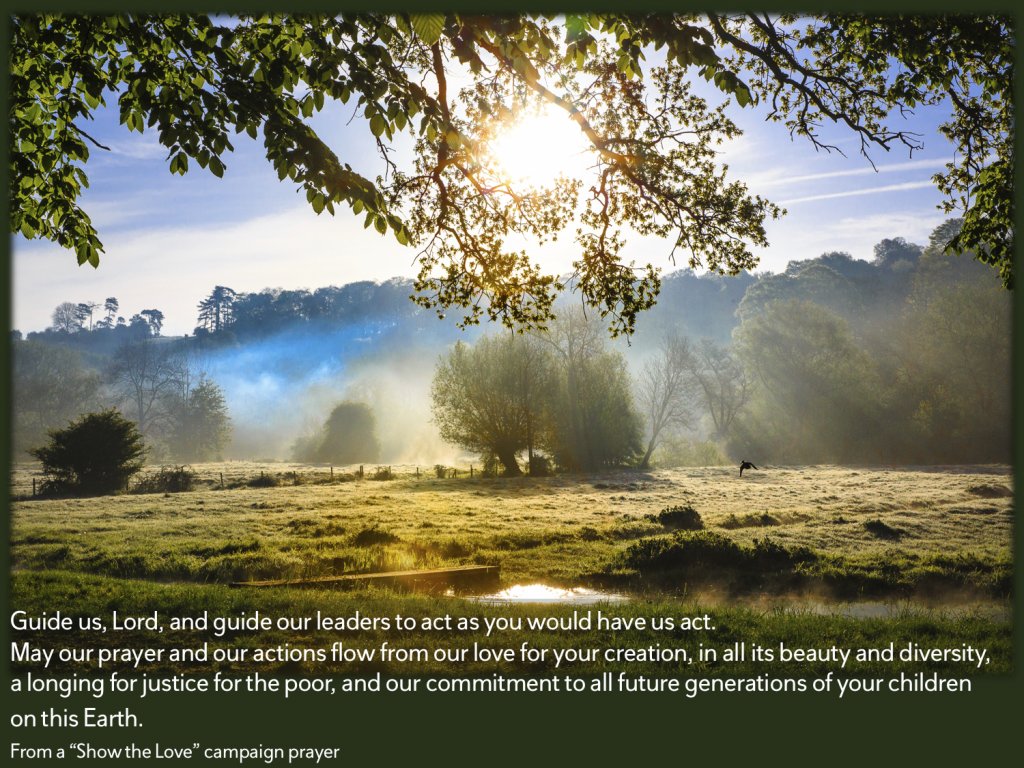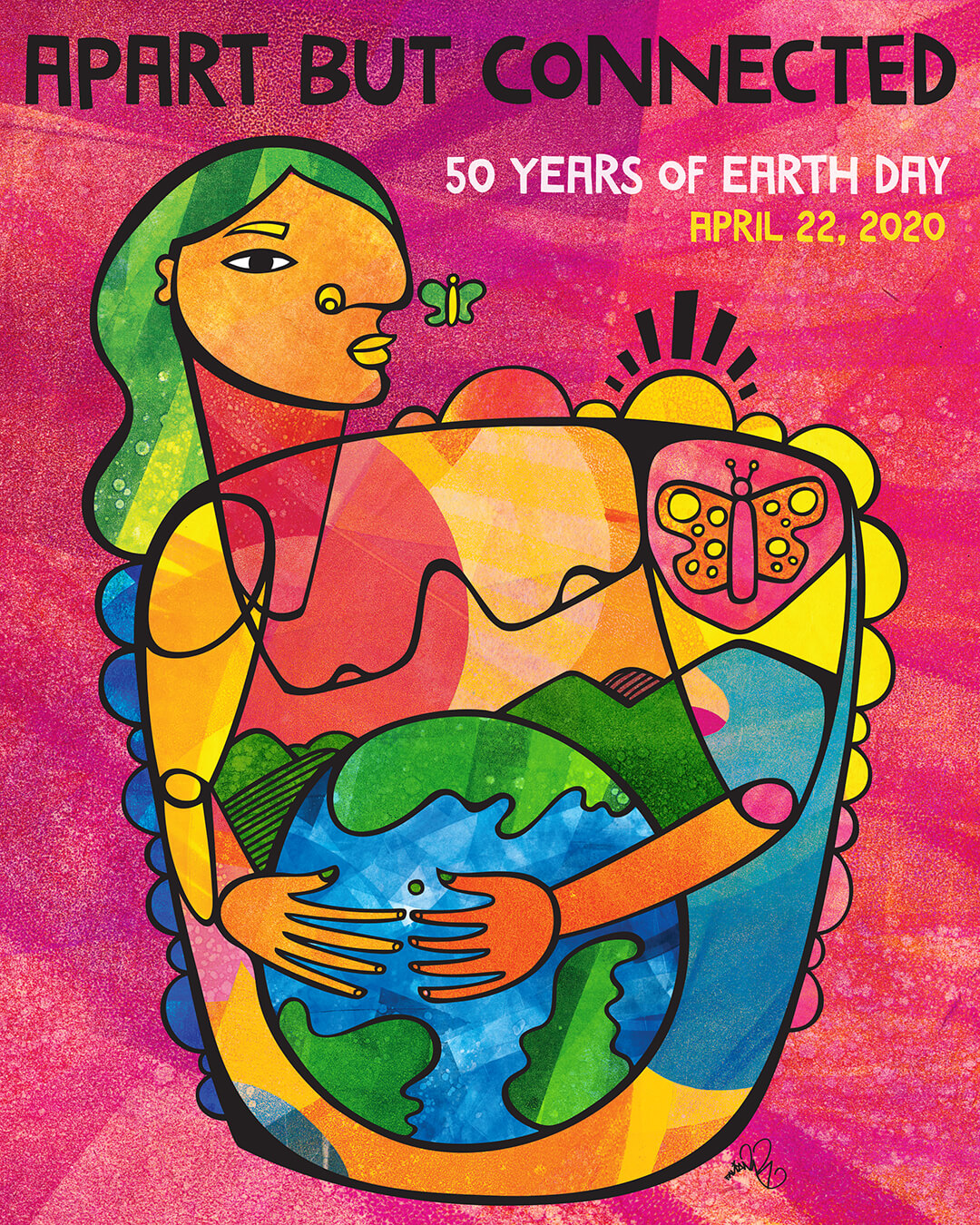The world is facing two crises: one is the COVID-19 pandemic; the other is the environmental and climate emergency. Once we begin to emerge from the first, we will still be facing the second. And its impacts will be catastrophic if urgent and far reaching action is not taken to address it.
April 22 is Earth Day, when millions of people around the world will take part in a three-day online mobilisation to stop the climate emergency. Tune in to Earth Day Live over April 22-24 to watch, discuss and participate in a livestream featuring stories, performances and opportunities for digital collective action.
Anglicans across the Communion have been holding special online services to mark the fiftieth Earth Day, including Green Anglicans in South Africa, whose service can be viewed here, and Washington National Cathedral, whose service is here. Revd. Dr. Rachel Mash, the Environmental Coordinator of the Anglican Church of Southern Africa, has posted an inspiring message for Earth Day 2020, which explores the question of where we can find living hope in the current circumstances. We also have a selection of visual prayers on our website here.
Anglicans in every part of the world are on the front line of the climate emergency. They are not only affected by its impacts but are also taking action to respond to its challenges, both at a local level and though connecting and sharing across the Communion. There are also several Communion-wide initiatives on the environment and climate change, including Green Anglicans, which is part of the Anglican Communion Environmental Network.
In the gospel reading for last Sunday – John 20:19-31 – we read: “Although the doors were locked, Jesus came and stood among them and said, ‘Peace be with you.’” Jesus speaks peace to the fearful: whether to his overwhelmed and traumatised followers then or to his overwhelmed and traumatised followers now. We need Jesus’ peace to face both the COVID-19 pandemic and the climate emergency.
In the gospel reading we also read that the resurrected Jesus still bore the evidence of his suffering. His body was not restored to the way it had been before but bore the marks of crucifixion. Jesus went through suffering and death and he carried their scars into the new reality. When we finally emerge from the COVID-19 pandemic, the new normal must reflect what the world has been through and honour the suffering so many will have endured. It must bear its marks. We need the new reality to carry forward the lessons we are learning. These include (but are by no means limited to): that we are deeply interconnected; that we are “our brother’s keeper”; that our actions have far reaching consequences; that whilst no one is immune to the pandemic, people who were already vulnerable or marginalised are impacted more severely than others; that the people on whom society depends to function are people who are frequently undervalued and overlooked; that (most) people can take quite drastic action to protect others – and for the common good – when called upon to do so; that people can be astonishingly selfless, brave and kind. If we can truly learn these lessons and apply them to the climate emergency, perhaps we will be in a better position to come through that crisis too.
Why does the Anglican Alliance care about the environment and climate change?
The Anglican Alliance exists to connect, equip and inspire the worldwide Anglican family to work for a world free of poverty and injustice and to safeguard creation. Our mandate is rooted in the Anglican marks of mission, of which the fifth is ““To strive to safeguard the integrity of creation, and sustain and renew the life of the earth”.
Climate change is a major factor driving poverty and migration, as well as having wider severe detrimental impacts on the environment, and is therefore a cross-cutting issue that is part of each of our three pillars of relief, development and advocacy.
The Anglican Alliance also provides a convening platform for Anglican churches and agencies to work together in the aftermath of disasters, many of which are climate related. Helping build resilience to disasters and building partnerships for response and resilience is an increasingly important part of our work. See here.
Please see here also for our resources on church responses to COVID-19.

Image: Elizabeth Perry / Anglican Alliance
#EarthDay2020 | earthday.org

